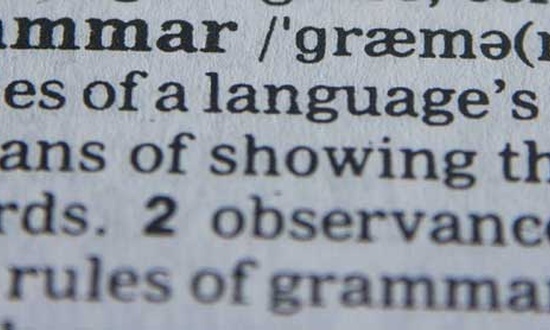Ten years ago I wrote a article on grammar and word usage in response to a letter I received from a reader. (No doubt you all remember it well! ????) This isn’t a rehash of that old article, but for those who love reading, as I do, I want to address, in a mostly lighthearted way, some current issues of language and wording.
Language is dynamic, not static. It’s always changing, and that’s why applying old rules to contemporary writing sometimes just doesn’t resonate. I’m thinking about this because the use of “whom” has come up several times recently in the editing of my blog posts and book manuscripts.
Basically, I go by how it sounds to me and how I think it will sound to others. Some of the old language and grammar rules are rarely followed anymore, and therefore, when they are followed they sometimes sound strange, like we’re going back in time to the way people used to talk but no longer do.
Those old rules were not actually rules (there’s no such thing in language; it’s not like chess or basketball). They are simply the common practice of a certain place and era, which to be taught in English classes means they are thought of as rules. But dominant usage changes while some are trying to hold fast to the old rules. The old rules are invalidated as language changes, and who knows when the old rule should be officially jettisoned since so few people are now abiding by it that those who do sound odd?
It comes down to how it actually sounds to most readers. The use of whom usually (though not always) strikes me as obsolete and even pedantic. No offense to butlers, but I don’t want to sound like one. As one writer puts it, “Going around using ‘whom’ properly probably makes people assume you have an entire closet just for your polo ascots.”
Quite a few people, some conveying disgust and even outrage, have made much of the fact that Twitter has a feature called Who to follow that suggests those you might be interested in. Their contention is, of course, that the proper way to say it is “Whom to follow.” Apparently Twitter feels like I do, and they don’t want to sound like a butler either.
The same is true of many old rules, like “Never split an infinitive.” This would take Star Trek from us: “To boldly go where no one has gone before.” Other times these rules make it impossible to convey precisely what we mean. For example, “I wanted to finally break that habit” works, but moving finally forward or backward doesn’t.
Or there’s “Don’t end a sentence with a preposition,” which produces “For what are you waiting?” or “That’s something up with which I shall not put” or “That is the book about which I was telling you.” So when I’m edited to unsplit an infinitive or not end a sentence in a preposition, I’ll go with the edit IF it sounds as natural as the alternative, but often I will go back to the original because I think it’s clearer and sounds less awkward. Just a few paragraphs ago when talking about Twitter I mentioned “a feature called Who to follow that suggests those you might be interested in.” Notice I did not say, as old grammar books would insist, “those in whom you might be interested.” I am not formal, and I don’t want what I write to sound formal.
Not wishing to sound formal is why I restored most of the contractions in one of my books when an editor removed every single one of them. “Don’t take Scripture out of context became “Do not take Scripture out of context” which sounds to me not like I’m giving good advice but instead a lecture in which I’m shaking my finger at readers. Imagine that multiplied hundreds of times with “will not” instead of “won’t” and “cannot” instead of can’t. The book sounded stilted and impersonal, exactly what I didn’t want. Trust me, removing all contractions from your writing makes you sound like the android Commander Data on Star Trek, who is one of my favorite characters, but not my model for speaking English like humans do.
The old rules, including those about who and whom, center on “What do old grammar books say?” and writing is now more about “What sounds good to today’s readers?” To me, whom usually sounds formal and even pretentious. The butler answers the phone as, “Whom shall I say is calling?” It should be who, by the way, but he thinks whom sounds classier and more dignified. It also sounds affected, even if it is technically correct!
What follows is on a writing website, and it reflects the general trend against using whom, because it’s increasingly rare to see it used in conversation and presentations and even in literature:
Practically speaking, there's no way to write using "whom" in every case prescribed by the eagerly repeated grammar rule without sounding formal and stuffy. In general, newspapers don't; novels don't. You'd be hard-pressed to find an organization that produces writing using "who" and "whom" consistently according to the rule.
Listen to how it sounds: "Whom am I kidding?" "Whom are you going to call / Whom you gonna call? Ghostbusters!" "A biography? Whom is it about?" "Whom do you think will be elected? Whom will people vote for?"
The bottom line from me is this: unless who sounds worse to me, I’ll usually stick with it. I’m not a fan of whom. I rarely use it when speaking or writing, as it just sounds archaic and stilted. I enjoyed much of Downton Abby, but it’s not my goal to talk that way. I know others who think the same, and some who don’t, but you have to make the call that sounds right to your ear, and which you think will sound most natural to most of your readers.
This doesn’t mean grammar isn’t important—it is. I believe only when you know the “rules” of grammar are you in the position to best know when to “violate” them in the interest of not drawing attention to the form of your writing and thereby distracting attention from its meaning.
So I’m not in favor of dumbing down the language and getting rid of constructive guidelines. I just don’t like binding rules when language is dynamic and flowing. And I don’t like words, old or new, that draw attention to themselves and sound like the speaker is trying to impress, like an article that I read recently which said, “It behooves us to…” Really? Who speaks like that? And why? (If you are a butler, feel free to say “behooves.” I am not belittling your vocation!)
Here’s a good article on the trend of replacing whom with who. Here’s yet another good one about grammatical rules that are now out of style.
Finally, I love this article because it’s very funny:
Hallmark drives another nail in coffin of dying pronoun ‘whom’
In the world of Twitter and texting, "whom" is archaic, a grammatical anachronism. In other words: Ask not for whom the bell tolls, it tolls for "whom."
By James A. Fussell
KANSAS CITY, Mo. — To whom it may concern: We’re not all that concerned with the proper use of “who” and “whom” anymore.
Oh sure, it was important to Ernest Hemingway when he wrote “For Whom the Bell Tolls” more than 70 years ago. We still teach “whom” in high school and use it as a salutation in letters to unknown recipients. And we might drop an “Ask not for whom the bell tolls, it tolls for thee,” misquote of a John Donne poem into casual conversation.
But, you know, whom really cares, right?
Photo by Laura Chouette on Unsplash




